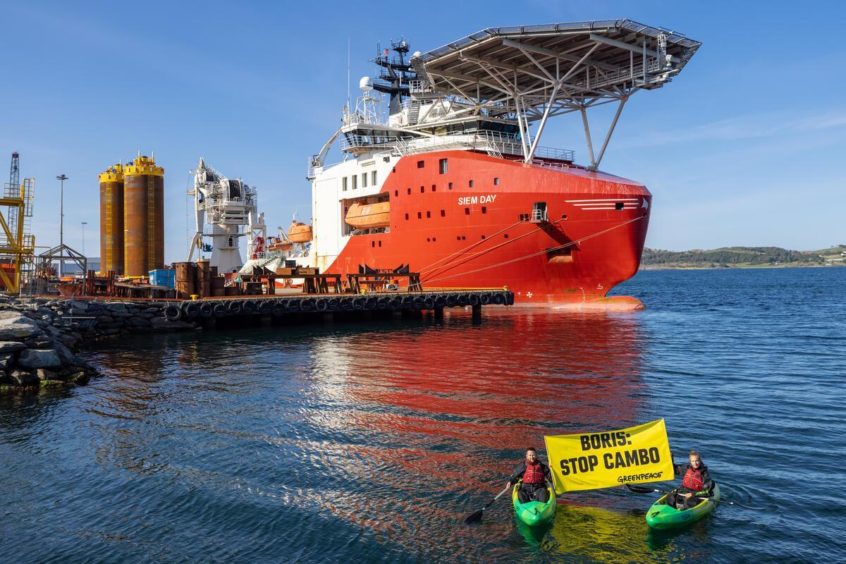
Shell pulling out of the west of Shetland Cambo project may boil down to the cost of stricter environmental legislation and a reduced appetite for investment, an oil and gas industry expert said today (December 3).
Alex Kemp, professor of petroleum economics at Aberdeen University, was speaking less than 24 hours after Shell delivered a major blow to plans to exploit the Cambo oilfield by walking away from its development.
We have environmental costs increasing, reducing the returns on investment.”
The Anglo-Dutch energy giant, with a 30% stake in Cambo, said the economic case for its continued involvement in the project was not strong enough.
It also pointed to the potential for delays.
Siccar Point Energy, holding a 70% share, has warned that a potential 1,000 direct jobs are at risk if the development fails to go ahead.
Prof Kemp said pressure on oil and gas firms to reduce carbon emissions offshore was adding to project costs and raising the bar among investors.
‘Unease among investors’
He added: “Companies are being asked to enhance their affairs in order to reduce emissions from their production processes. This will be adding to costs.
“One possible interpretation of Shell’s brief statement is the extra cost of meeting more stringent environmental regulations is having an effect on what the returns of investment will be.
“This is causing unease among investors.”
Oil and gas investors may soon also have to weigh up the impact of carbon pricing, said Prof Kemp, who is also director of the Aberdeen Centre for Research in Energy Economics and Finance.
The aim of carbon pricing would be to reduce greenhouse gas emissions by adding a cost for those creating them.
Prof Kemp said: “It hasn’t happened in the UK yet but a lot of environmental economists think it should.
“So, we have environmental costs increasing, reducing the returns on investment.”
Delays
Operators are also facing delays with their offshore investments, while they work out how to power up their facilities using renewable energy, he said.
As well as all the environmental issues impacting the industry, operators are also facing a change in attitude among lenders, he added.
Shell and other energy companies may be raising the bar on the kind of project they are willing to invest in because of this change, he said.
Prof Kemp was encouraged by Siccar Point’s commitment to going ahead with the project, although it still requires regulatory approval.
He added: “Shell will very likely be willing to sell its stake. The question then is who would buy it and at what price.
“There could be buyers out there, depending on the price.”
The Cambo project is in the first phase targeting 175 million barrels, but subsequent stages would go after additional resources, according to an environmental statement.

